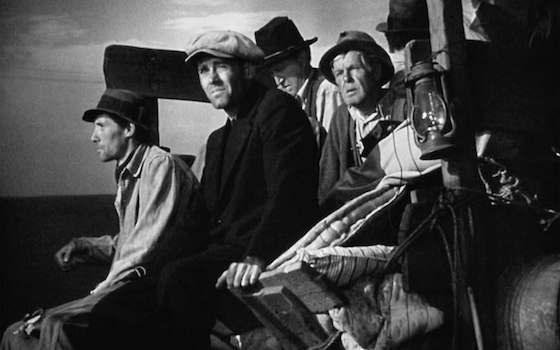- MENU
- HOME
- SEARCH
- WORLD
- MAIN
- AFRICA
- ASIA
- BALKANS
- EUROPE
- LATIN AMERICA
- MIDDLE EAST
- United Kingdom
- United States
- Argentina
- Australia
- Austria
- Benelux
- Brazil
- Canada
- China
- France
- Germany
- Greece
- Hungary
- India
- Indonesia
- Ireland
- Israel
- Italy
- Japan
- Korea
- Mexico
- New Zealand
- Pakistan
- Philippines
- Poland
- Russia
- South Africa
- Spain
- Taiwan
- Turkey
- USA
- BUSINESS
- WEALTH
- STOCKS
- TECH
- HEALTH
- LIFESTYLE
- ENTERTAINMENT
- SPORTS
- RSS
- iHaveNet.com: Book Reviews

'The Grapes of Wrath' Resonates 75 Years Later
by Leonard Pitts
It was an angry book.
Much of the response was angry, too. Some towns banned it, some towns burned it. Every town talked about it.
"The Grapes of Wrath" was published 75 years ago this month, a seminal masterpiece of American literature that seems freshly relevant to this era of wealth disparity, rapacious banks and growing poverty.
Perhaps you remember from English class -- or the 1940 film starring
"Wherever they's a fight so hungry people can eat, I'll be there. Wherever they's a cop beatin' up a guy, I'll be there. ... I'll be in the way guys yell when they're mad an' I'll be in the way kids laugh when they're hungry an' they know supper's ready. An' when our folks eat the stuff they raise an' live in the houses they build -- why, I'll be there."
The anger of
Seventy-five years later, in the wake of the worst economic catastrophe since that time, one is glad to hear faint echoes of the novel's anger in a population that has seemed docile and somnambulant even as the American Dream was being dismantled around them. One is gratified by the Occupy movement, unfocused as it was, that sprang up three years ago, by the chanting of fast-food workers demanding a living wage, by the lacerating fury of a
"Send the robber barons straight to h--l, the greedy thieves who came around and ate the flesh of everything they found," he growls in 2012's "Death to My Hometown."
These are the sounds and actions of people waking up. Steinbeck would likely approve.
The final pages of his book find the Joads reduced to almost nothing, pushed out, flooded out, family members dying, others just gone. Then daughter Rosasharn goes into labor. The baby is stillborn.
"Never breathed ... never was alive."
But there is always someone who has it worse and, sheltering from the flood in someone's barn, the Joads meet him, a man so shriveled by hunger he can't take solid food. Rosasharn, her breasts heavy with milk her dead baby will never use, knows what she must do.
Viewed from the perch of an I-got-mine era, a let-'em-eat-cake era, a bling era where net worth equals self-worth and the denigration of the poor is a staple of cable TV news, the thing she does may seem confounding. Which says less about it than about us, and the lost ideal of common humanity.
But it is precisely that ideal Steinbeck insists upon, and that insistence resonates even across a gulf of 75 years. Huddled in a borrowed shelter, Rosasharn draws the dying man to her. She cradles this stranger and nurses him. Reduced to only her body, only her self, she gives that.
It is a lesson for then, for now, forever. We are human beings. There is one comfort we're meant to have even when we have nothing else.
Each other.
Available at Amazon.com:
Thrive: The Third Metric to Redefining Success and Creating a Life of Well-Being, Wisdom, and Wonder
Article: Copyright ©, Tribune Content Agency.
'The Grapes of Wrath' Resonates 75 Years Later